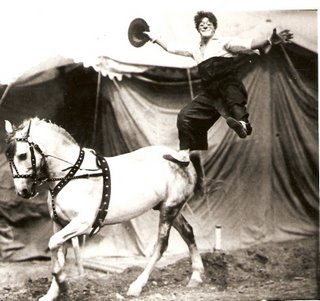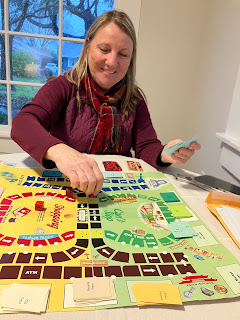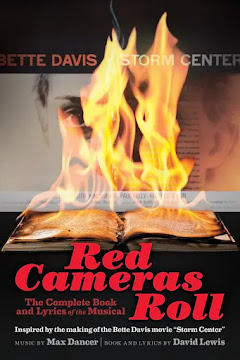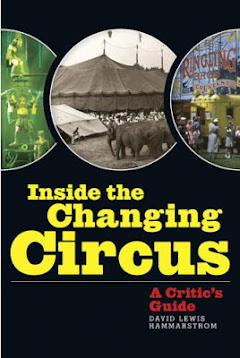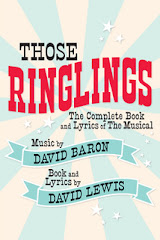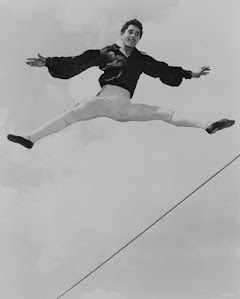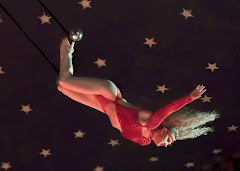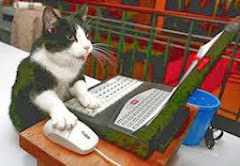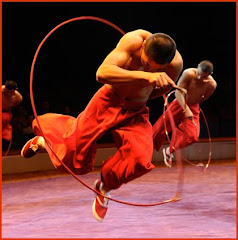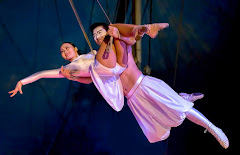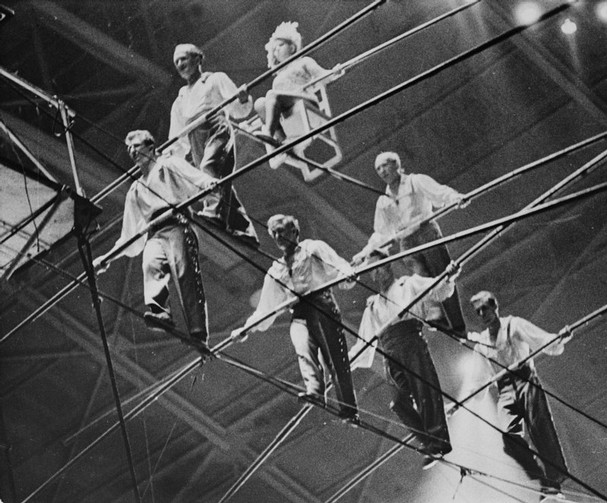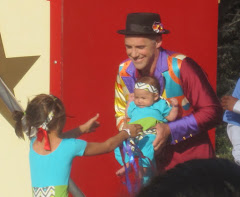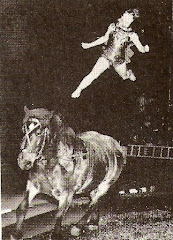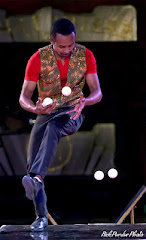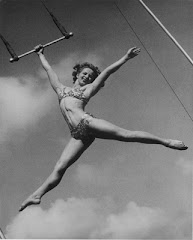 From the first year of posting ...
From the first year of posting ...The arena fell dark. The band fanfared up. The blast of a silver whistle pierced the air. We could feel a thrill coming ...
Spotlights shone down on a man in red raising his hand with a flourish -- like a magician about to pull a spectacle out of a hat -- and turning twenty magical words into the most important-sounding announcement in the world:
Children of alllllll ages! John Ringling North welcomes you to the 95th edition of the Greatest Show on Earth!
He was maybe the greatest ringmaster on earth -- the one and only Harold Ronk, who died at the age of 85 on August 2nd in Canton, Illinois. He had been away from the big top for twenty five years, content to spend a quarter of a century in near-anonymous retirement.
What made this particular ringmaster arguably the undisputed king of an art from that he himself helped define? First and foremost, the statuesque and commanding, blond-haired Ronk was blessed with the fullness of a smooth stentorian voice. Not shrill or grating, it had timber. He shaped his introductions word by word -- each like a choreographed step forming a visual pattern. And, once delivered, he stepped discretely aside, never one to overstay his welcome. In fact, so above it all was he that he never even lived on or rode the circus train, opting to drive overland and reside in hotels.
In 1951 (or 1952 -- a mystery to be explored here sometime up the road), Ronk was hired to sing songs for spec and production numbers. On occasion, he filled in for big top announcer Count Nicholas, and when the circus went indoors in 1957, Ronk became both its ringmaster and vocalist.
There were rare Ronkian touches. He once spoofed old-fashioned circus hyperbole as a leaper was about to dive from the upper reaches of the rigging to a tiny net below. Declared Ronk, stretching out just two words in low foreboding tones, "W a a a t c h - - - h i i i m!"
Ronk's robust figure, his overall elegance and majestic oratory suited the classic American three-ring circus. Al Ringling, who is said to have defined the mystique of the ideal tanbark orator in three words -- "elusive yet vital" -- would have approved with a smile, we think. Ronk was a gracious personality away from the ring, a tactful diplomat for the show, both for the Norths and for the Felds. He avoided controversy and refrained from criticizing any acts -- or, for that matter, any other circuses. He was, indeed, as classy an act as ever appeared with Ringling-Barnum.
I, like many others, hoped that he would one day return. He never did.
The ringmaster waved the crowd farewell
and whistled down the drums
His magic kept us dreaming still
of a season that never comes
Au revoir, Ringmaster Ronk ...
First posted October 30, 2006
